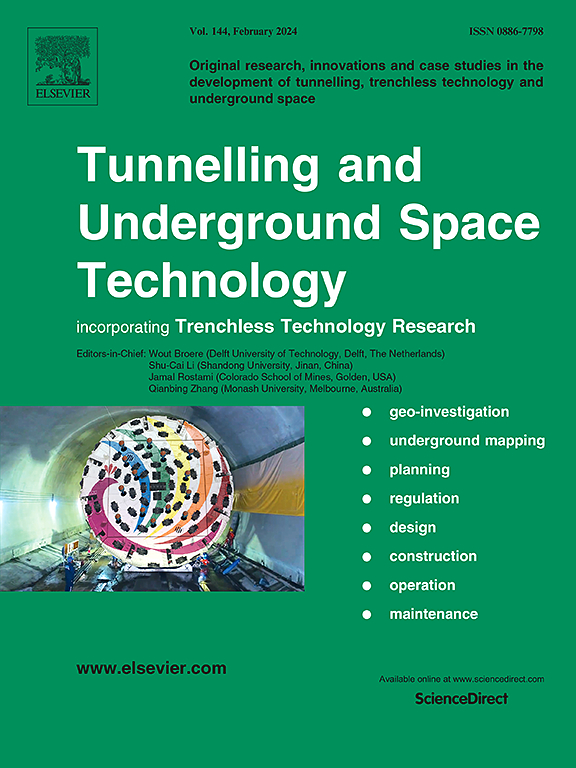Resilient design of urban rock tunnels using prestressed support systems: Experimental study and field applications
IF 6.7
1区 工程技术
Q1 CONSTRUCTION & BUILDING TECHNOLOGY
引用次数: 0
Abstract
As the importance of urban underground infrastructure in disaster prevention and mitigation becomes increasingly evident, rock tunnels face complex geological and hazard risks. Prestressed support systems are widely regarded as an effective solution to enhance the disaster resilience of shallow-buried urban rock tunnels. However, traditional stress arch theory, which is designed for deeper tunnels, proves unsuitable for shallow environments, resulting in an underutilization of prestressed support systems in resilience-oriented designs. This study investigates how post-peak confining pressure compensation influences rock mass stability and strength, with verification from practical engineering cases. The results show that confining pressure compensation can significantly improve the residual strength and deformability of the rock mass, particularly at lower compensation stages, where the rock mass exhibits high sensitivity to changes in confining pressure. Furthermore, confining pressure compensation mitigates unloading-induced strength loss and substantially increases the post-peak elastic modulus. In practical engineering, the application of high-strength, high-toughness NPR bolt prestressed support in a shallow, large-span urban rock tunnel yielded significantly reduced tunnel crown settlement compared to conventional methods, demonstrating the feasibility and benefits of this approach. These findings reinforce the effectiveness of prestressed support in enhancing tunnel resilience and protecting urban underground infrastructure, offering valuable theoretical and practical insights for future development. The proposed post-peak confining pressure compensation theory underpins the resilient design of urban rock tunnels and provides a novel technological pathway for underground infrastructure in disaster prevention and recovery.
求助全文
约1分钟内获得全文
求助全文
来源期刊

Tunnelling and Underground Space Technology
工程技术-工程:土木
CiteScore
11.90
自引率
18.80%
发文量
454
审稿时长
10.8 months
期刊介绍:
Tunnelling and Underground Space Technology is an international journal which publishes authoritative articles encompassing the development of innovative uses of underground space and the results of high quality research into improved, more cost-effective techniques for the planning, geo-investigation, design, construction, operation and maintenance of underground and earth-sheltered structures. The journal provides an effective vehicle for the improved worldwide exchange of information on developments in underground technology - and the experience gained from its use - and is strongly committed to publishing papers on the interdisciplinary aspects of creating, planning, and regulating underground space.
 求助内容:
求助内容: 应助结果提醒方式:
应助结果提醒方式:


